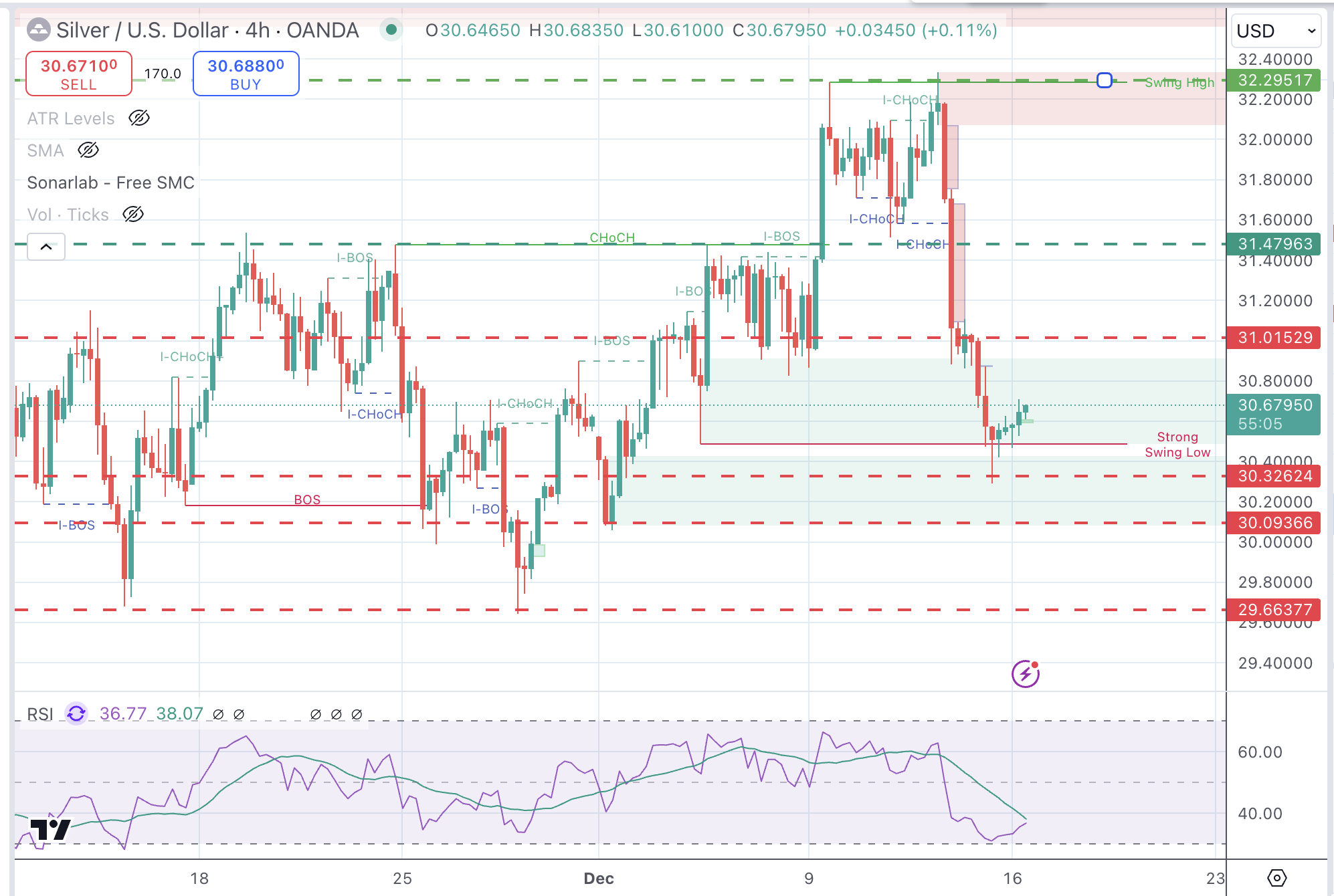Silver Price Forecast: XAG/USD finds support at $30.30 to trim some losses
- Silver trims some losses as US Dollar's rally halts
- The pair remains vulnerable following a more than 4% depreciation over the last three trading days,
- Upside attempted remain feeble, with the $30,30 support area still at a short distance.
Silver Prices (XAG/USD) are trading in a mild positive bias on Monday, trimming some losses after the rejection from levels above $32.00 last week. A mild retreat in US Treasury yields is supporting precious metals on Monday but the overall picture shows the pair vulnerable.
The daily chart reveals a sharp reversal pattern last week, which triggered a more than 4% sell-off in the last half of the week. Upside attempts are looking feeble so far, with previous support at $30.85 likely to challenge bulls.
So far the current recovery seems corrective, unable to put a significant distance from Friday’s low, at $30.30. Below here, December’s low at the $30.00 round level might provide some support ahead of the key $29.65 level.
To the upside, immediate resistance is at $31.00. Above here, $31.45 (November 18, 24 and December 4 high and December 11 low) will be targeted ahead of last week’s highs at $32.30.
XAG/USD 4-Hour chart

Silver FAQs
Silver is a precious metal highly traded among investors. It has been historically used as a store of value and a medium of exchange. Although less popular than Gold, traders may turn to Silver to diversify their investment portfolio, for its intrinsic value or as a potential hedge during high-inflation periods. Investors can buy physical Silver, in coins or in bars, or trade it through vehicles such as Exchange Traded Funds, which track its price on international markets.
Silver prices can move due to a wide range of factors. Geopolitical instability or fears of a deep recession can make Silver price escalate due to its safe-haven status, although to a lesser extent than Gold's. As a yieldless asset, Silver tends to rise with lower interest rates. Its moves also depend on how the US Dollar (USD) behaves as the asset is priced in dollars (XAG/USD). A strong Dollar tends to keep the price of Silver at bay, whereas a weaker Dollar is likely to propel prices up. Other factors such as investment demand, mining supply – Silver is much more abundant than Gold – and recycling rates can also affect prices.
Silver is widely used in industry, particularly in sectors such as electronics or solar energy, as it has one of the highest electric conductivity of all metals – more than Copper and Gold. A surge in demand can increase prices, while a decline tends to lower them. Dynamics in the US, Chinese and Indian economies can also contribute to price swings: for the US and particularly China, their big industrial sectors use Silver in various processes; in India, consumers’ demand for the precious metal for jewellery also plays a key role in setting prices.
Silver prices tend to follow Gold's moves. When Gold prices rise, Silver typically follows suit, as their status as safe-haven assets is similar. The Gold/Silver ratio, which shows the number of ounces of Silver needed to equal the value of one ounce of Gold, may help to determine the relative valuation between both metals. Some investors may consider a high ratio as an indicator that Silver is undervalued, or Gold is overvalued. On the contrary, a low ratio might suggest that Gold is undervalued relative to Silver.

